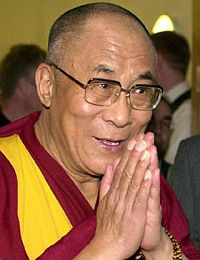 The recent anti-élite campaign jargon of the McCain-Palin camp has made use of a most annoying–but ubiquitous–malapropism. Palin, especially, refers rather often, and rather annoyingly, to the “good ol’ boy network.” If anything could solidify one’s status as outside of the élite, this off-target utterance would be that thing. See, there is a world, or at least a continent, of difference between a “good old boy” and an “old boy,’ and rest assured, it is the old boys who have the network to which one really wants to belong.
The recent anti-élite campaign jargon of the McCain-Palin camp has made use of a most annoying–but ubiquitous–malapropism. Palin, especially, refers rather often, and rather annoyingly, to the “good ol’ boy network.” If anything could solidify one’s status as outside of the élite, this off-target utterance would be that thing. See, there is a world, or at least a continent, of difference between a “good old boy” and an “old boy,’ and rest assured, it is the old boys who have the network to which one really wants to belong.
You’d never be able to buy your way in to either network, however. An “old boy” is a graduate of one of England’s “public” or independent schools, someplace like Eton College. While good ol’ boys have quite the little network of their own, membership will cost one very little. All one has to do is be among the fourth or fifth generation of a respectable, church-going family living in some region of the rural south, and you’re well on your way. True, this membership will only take one only just so far. Still, A “good ol’ boy” need not have graduated from anywhere, even an American public high school. One need only possesses a spectrum of traits, which make one worthy of the title, rendered somewhat lovingly in one’s absence.
The term signifies one’s apparent humility, one’s apparent basic decency, as well as one’s obvious tendency to withhold any forthright opinion on any particular topic in the presence of strangers. This is the central trait of the good ol’ boy, and one he holds in common with many of his upper-crust British cohort. He leaves people free to hold, and even to express, the most outlandish positions on matters many and various. He’ll never tell anyone they’re wrong; he’ll never tell people what he thinks about that topic, but you will never win him over to your line of thinking, no matter how solid your argument. Oh, you will think he agrees with you, but you will want to be a fly on the wall when next he gets together with others of his ilk to know the truth.
Although he is a man of no apparent opinions in the presence of people he doesn’t know that well, one finds he is also a man of rigidly held, dogmatic beliefs once one gets to know him. It is this trait, and perhaps this trait alone, which he shares in common with the old boys of Britain. It is this trait, perhaps, that serves as a marker of his common heritage with the ruling élite of the United Kingdom.
On a related note, one has noticed how natives of tiny, overpopulated island nations have a way of taking politeness to the next level. Look at Japan and England, for example. I mean, they come by this trait naturally, it seems, and it is easy to see why. How uncomfortable would it be to spend time with someone once one had established a source of disagreement with him or her? Best, then, to keep all such disagreements from ever surfacing, to keep one’s own counsel, to state forthright opinion only among those one knows already hold the same opinion. It only makes sense.
 Tonight’s
Tonight’s  Having plumbed a new low in North Carolina politics–and, let’s face it, a low in NC, the home of
Having plumbed a new low in North Carolina politics–and, let’s face it, a low in NC, the home of  The recent anti-élite campaign jargon of the McCain-Palin camp has made use of a most annoying–but ubiquitous–malapropism. Palin, especially, refers rather often, and rather annoyingly, to the “good ol’ boy network.” If anything could solidify one’s status as outside of the élite, this off-target utterance would be that thing. See, there is a world, or at least a continent, of difference between a “good old boy” and an “old boy,’ and rest assured, it is the old boys who have the network to which one really wants to belong.
The recent anti-élite campaign jargon of the McCain-Palin camp has made use of a most annoying–but ubiquitous–malapropism. Palin, especially, refers rather often, and rather annoyingly, to the “good ol’ boy network.” If anything could solidify one’s status as outside of the élite, this off-target utterance would be that thing. See, there is a world, or at least a continent, of difference between a “good old boy” and an “old boy,’ and rest assured, it is the old boys who have the network to which one really wants to belong. I don’t know what got into me, exactly, but on a whim, I entered “I can haz” into a Google search. I guess I was becoming aware how often the phrase appears as I surf around. I wondered how pervasive it had become, how much cultural penetration it had achieved.
I don’t know what got into me, exactly, but on a whim, I entered “I can haz” into a Google search. I guess I was becoming aware how often the phrase appears as I surf around. I wondered how pervasive it had become, how much cultural penetration it had achieved.  With the
With the